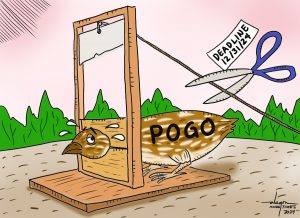 THE DISTINCTION between historical revisionism and historical distortion remains a critical yet often misunderstood concept in understanding our past. The discourse around these terms has gained momentum in the country, especially in academic circles and public forums.
THE DISTINCTION between historical revisionism and historical distortion remains a critical yet often misunderstood concept in understanding our past. The discourse around these terms has gained momentum in the country, especially in academic circles and public forums.
Historical revisionism, as explained by scholars, involves reinterpreting historical narratives based on new facts and evidence. It is an academic pursuit rooted in the quest for truth. The revisions made to the historical understanding of figures like Magellan and Lapu-Lapu, or the medical condition of Apolinario Mabini, or the retraction of Jose Rizal, exemplify this. These changes were not made to distort the past but to bring clarity to historical events based on emerging evidence.
Contrastingly, historical distortion, or negationism, occurs when historical facts are deliberately altered or denied to serve a specific agenda. This manipulation often involves spreading lies or misinformation, a tactic unfortunately prevalent in various social media platforms. The portrayal of the Marcos regime in the Philippines is a striking example. Despite clear evidence and court rulings indicating corruption and human rights violations during Martial Law, some continue to deny these truths, choosing instead to propagate a sanitized version of history.
The power of social media in shaping public opinion cannot be understated in this context. Platforms like Facebook, Tiktok, Twitter, Instagram, and YouTube have become battlegrounds where historical truths are often challenged by falsehoods. In our country, where social media usage is high, this becomes particularly problematic. It leads to a situation where, as La Salle historian Xiao Chua metaphorically puts it, people are more inclined to believe quack doctors over medical professionals.
Atenean historian Ambeth Ocampo’s stance on this issue is also firm. He emphasizes the resilience of historical truths against the onslaught of falsehoods. Likening the battle against historical distortion to an exorcism, he suggests that identifying and naming the ‘demons’ of falsehoods is the first step in banishing them. His approach is not just about confrontation but involves engaging with these distorted narratives on their own ground–the digital platform.
Chua’s perspective complements this. He urges a clear differentiation between historical revisionism, which can be a legitimate academic endeavor, and distortion or negationism, which are deliberate attempts to mislead. Chua’s call for a more nuanced understanding of revisionism is a reminder that not all changes to historical narratives are inherently harmful. Sometimes, they are necessary corrections or updates based on new findings.
The responsibility falls on both educators and the public to discern facts from fiction, especially in an era where digital platforms are often the first source of information. Our historical experience, rich and complex, is often at the mercy of those who would rewrite it for their own gain. The need for critical thinking and a robust educational framework that teaches the importance of historical accuracy becomes paramount.
Clearly, the role of education in this battle against historical distortion is crucial. It is not just about teaching facts but also about fostering an environment where questioning and critical analysis are encouraged. It must challenge its way of proceeding to motivate learners to engage with history not as a static narrative but as a dynamic and evolving story that requires continuous interrogation, validation, and understanding.
This approach to history, grounded in both evidence and critical engagement, is vital in a country like ours. With our diverse and tumultuous past, understanding the nuances of history is not just an academic exercise but a key to national identity and consciousness. As Ocampo and Chua have highlighted in their recent talks, the fight against historical distortion is a fight for truth, requiring vigilance, education, and a commitment to factual integrity.
***
Doc H fondly describes himself as a ‘student of and for life’ who, like many others, aspires to a life-giving and why-driven world that is grounded in social justice and the pursuit of happiness. His views herewith do not necessarily reflect those of the institutions he is employed or connected with.


